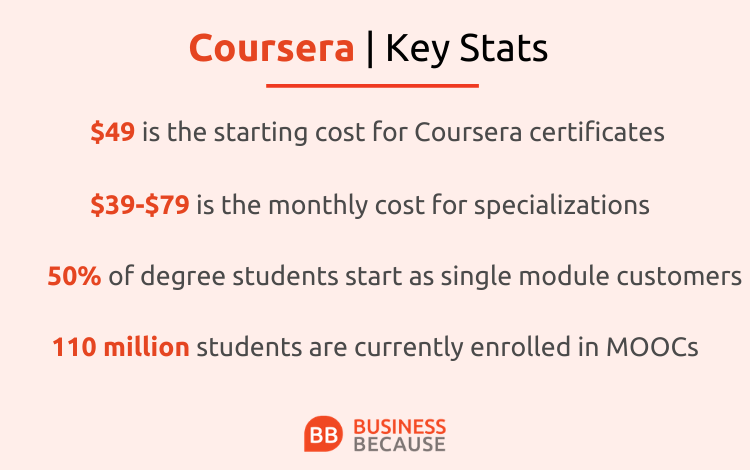Massive Open Online Course (MOOC) providers like Coursera and FutureLearn have been riding a wave of job security fears caused by automation and digital disruption, increasing their reach and revenue.
Coursera is valued at around $2.5 billion after raising another $130 million venture capital in July 2020. And in a global higher education market worth $2 trillion, the coronavirus pandemic has also given a boost to MOOC providers.
These platforms are capitalizing on the steady drumbeat of panic about job disruption. They position their products as a hedge against unemployment and displacement, but as yet, no one has examined if learning behaviors in MOOCs are correlated to career benefits.
In my research, I developed a study to ask which behavior variables in online courses correlate to post-course career benefits. Results from a survey of random online learners revealed that 79% believe they ‘definitely’ or ‘probably’ experienced career benefits from taking MOOCs.
So, what are the real benefits of taking a MOOC?
Up-skilling: learn something new
Interestingly, the intentions learners have when they start a MOOC do not often line up with the actual benefits they receive.
I found that 54% of learners said they received career benefits different from those they expected when they enrolled. And while only 18% said ‘learning something new about the topic’ was their primary motivation for enrolling, 48% said learning about the topic was the primary benefit of completing the course.
So, if you need to advance a hard skill for your job—or to prepare for a new job—MOOCs can be an effective and affordable option.

Improved job performance
The study also revealed that a small but not insubstantial number of learners gained measurable career benefits from taking MOOCs. For example, 15% of those surveyed reported improved job performance, 2% said they earned a new role at work, and nearly 1% reported receiving a raise or bonus.
If your primary motivation is to earn a raise or take on a new role, a MOOC could be part of a well-rounded case to present to your employer, but is unlikely to move the needle on its own.
Additional research is needed to understand whether employers and hiring managers see MOOCs as a viable option for preparing for the future of work and closing critical skill gaps.
Preparing for business school
Unexpectedly, MOOCs often operate as preparation for, and a supplement to, business school programs.
Nearly a quarter of survey respondents were already enrolled in a degree program and 43% planned to apply to one.
MOOCs on business topics can serve as boosters when your primary focus is education. On the other hand, these MOOCs offer a taste of the business school classroom that can help would-be students make an informed decision about their application.
Bridging the skills gap
Ultimately, MOOCs are one piece of the puzzle when it comes to bridging skill gaps and preparing for the future of work. Traditional higher education institutions, lifelong learning providers, and disruptive education developments will also be needed to solve the talent issues businesses are facing.
The rapidly changing nature of work has made it difficult for businesses to hire enough trained workers, causing a mismatch between employee skills and business requirements.
Continuing education, or lifelong learning, is seen as the best response to this threat. As workers continuously learn new skills and evolve with the changing nature of their jobs, universities and especially business schools have an opportunity—if not an obligation—to provide educational opportunities to a broader audience at a lower price online.
This article was written by Anne Trumbore, Ed.D, executive director, digital, lifelong learning & executive education at the University of Virginia Darden School of Business.
Anne is the author of a chapter on MOOC outcomes for learners in the upcoming book The Great Skills Gap: Optimizing Talent for the Future of Work (Stanford University Press, 2021).
Next Read:


